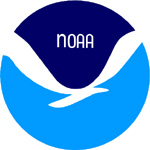



The program objective is to promote the professional development of minority undergraduate students through their participation in ocean, marine and space science research. The program will consist of a group of ten undergraduates. Applications are accepted from throughout the country. Undergraduate students selected must be citizens or permanent residents of the United States. Each student will be assigned to a specific research team, where he/she/ will work closely with the faculty. In addition, seminars, lunch meetings, and social functions will be organized to facilitate undergraduate interaction. The project will be conducted for eight weeks during summer 2004, with on-line mentoring and follow-up during the academic year 2004-05. Each student will be granted a stipend of 300 dollars per week, housing and in some cases assistance with travel. Students who are in those groups traditionally under-represented in science are particularly urged to apply. Mathematics, computer science, geo-science, biology, and some physics majors who have completed 30 hours of coursework by the beginning of the program are eligible to apply. GPA of 3.0 or above is required.
• Marine/Ocean science related experiences
• Marine related field experiences
• Undergraduate Research Conference
• Earth System Science Academy focusing on The Great Dismal Swamp
and the health of local waterways
• Boating experiences aboard the LH Viking Research Vessel, NOAA
research vessels, or other marine
• mammal research vessels
See http://nia.ecsu.edu/ureoms2002/index.html
or http://nia.ecsu.edu/ureoms2003/index.html
for a description of previous team projects and highlights from past
summers.
Applications must be received by February 13th, 2004. To apply, send a current transcript, resume, a one page statement of goals, and one letter of recommendation to:
Dr. Linda Hayden
Box 672 ECSU ONR
1704 Weeksville Road
Elizabeth City, NC 27909
(252) 335-3696 voice
(252) 335-3790 fax


